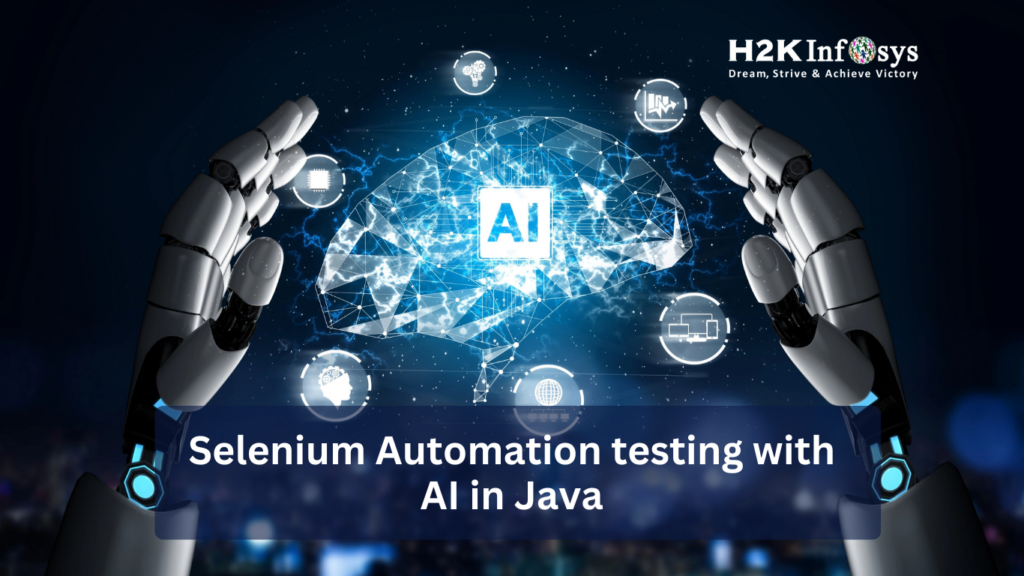“Development” and “operations” are combined to form the portmanteau “DevOps.” It is the procedures implemented to enhance the organisation’s performance by providing applications in a timely and efficient manner. It cuts down on the typical software development life cycle, which sets it apart from traditional software development techniques. DevOps unites all the technologies and ideologies that automate and combine IT teams with the development process. It is not a software program or a language for coding. Instead, it is an approach that incorporates each phase. Nonetheless, a DevOps Engineer should have a strong skill base in coding, scripting, etc.
DevOps is mostly dependent on efficient tools. Tools play a crucial role in assisting various teams in coordinating and completing tasks at the necessary speed and calibre. They manage complicated issues and aid in the automation of labour-intensive jobs. Planning, automated testing, automating deployment, and linking everything together are the four essential components.
For any issue, the Internet might be a valuable resource. But books give us a condensed version; the author gathers all the information needed to have a thorough understanding of DevOps ideas. We’ve examined and compiled a list of the top 7 books that are suggested for learning about DevOps techniques. Both novices and experts can benefit from it. The main points of the book tell you what to expect from it. It is also advisable that you check out our online DevOps training to learn more.
1.The DevOps Handbook
The DevOps Handbook: How to Create World-Class Agility, Reliability & Security in Technology Organizations, written by Gene Kim, Jez Humble, Patrick Debois, and John Willis, was published by IT Revolution Press in 2016.
The best book recommendation goes to this one since it increases productivity and profitability targets. With a variety of DevOps techniques, it improves the workplace culture. The three approaches are covered in full in this article: the principles of flow, feedback, and continuous learning and experimentation.
The DevOps Handbook provides instructions on how and where to begin; for example, the author(s) start by choosing a value stream. All of the automation and hazards are examined in The First Way. The Second summarises the development and examination of Telemetry. It is easy to learn how to integrate and coordinate different processes. The book also covers various security-related controls and management. As a result, the book covers most topics and is easy to understand for all levels of a DevOps Engineer.
2.Effective DevOps: Building a Culture of Collaboration, Affinity, and Tooling at Scale
Effective DevOps: Building a Culture of Collaboration, Affinity, and Tooling at Scale by Jennifer Davis and Ryn Daniels was also released in 2016. It was published by O’Reilly Media, Inc.
The book can be described as a useful manual for various approaches to enhance teamwork. The first section of the book provides a quick overview of DevOps. It includes a ton of case examples to help you better comprehend the ideas. It goes into great depth on the fundamental terms and ideas of operational techniques like COBIT and ITIL as well as software development methodologies like Say, Agile, Waterfall, and Scrum. Concepts related to system deployment and methods are also explored.
The anti-patterns and misconceptions are also addressed by the author(s). The four pillars of DevOps—Collaboration, Affinity, Tools, and Scaling—are referenced and covered in more detail in each unit. The overview, team and individual culture, misconceptions, and troubleshooting for each of the four pillars are all contained in the respective units. Subsequently, the idea of bridging DevOps Culture is explained in detail. If you want to learn everything there is to know about DevOps, this book is highly recommended.
3.The Phoenix Project: A Novel about IT, DevOps, and Helping Your Business Win
The Phoenix Project: A Novel about IT, DevOps, and Helping your Business Win by Gene Kim, Kevin Behr, and George Spafford, published by IT Revolution in 2018.
This book offers an alternative viewpoint on the IT industry. If you’re a business and IT executive having trouble keeping up with the field’s increasing complexity, definitely add this book to your library. The book’s author(s) has put together a number of useful theories that offer insightful insights that support time management and business applications.
The book just discusses the “systems thinking” method; it does not address any technical information, specifics, or tools. Additionally, it draws similarities between manufacturing employment and IT jobs. The narrative structure of the book helps readers appreciate and comprehend the ideas with ease. Frequently, common scenarios are addressed so that everyone can relate to them and act accordingly. This book is great for beginners.
4.Accelerate: Building and Scaling High-Performing Technology Organizations
Accelerate: Building and Scaling High Performing Technology Organizations by Nicole Forsgren, Jez Humble, and Gene Kim was released in 2018. It was published by IT Revolution Press.
The authors claim to have developed a means of evaluating software delivery performances following four years of research. In essence, this book gives readers an overview of the science, techniques, and research that went into it. The three sections of the book are devoted to measurement, research, and transformation. Cycle time, deployment frequency, change failure rate (CFR), and mean time to recovery (MTTR) are the four metrics that are used. Increased profitability, market share, and customer happiness are directly correlated with improved KPIs. As a result, the debate throughout the book is entirely data-driven.
The explanation of Science provides readers with a deeper comprehension. In summary, a few techniques are discussed to enhance Software Delivery Performance. It covers things like experimentation, infrastructure-as-a-code, security, continuous delivery, and transformational leadership. Additionally, many such practices are discussed in detail in the book.
5.The DevOps Adoption Playbook: A Guide to Adopting DevOps in a Multi-Speed IT Enterprise
The DevOps Adoption Playbook: A Guide to Adopting DevOps in a Multi-Speed IT Enterprise by Sanjeev Sharma was released in 2017. It was published by Wiley.
It is claimed that this book will dispel all fallacies about DevOps and offer useful advice for putting them into practice. It addresses the difficulties on an organisational level. An overview of DevOps, including its history, foundations, methods, and culture, opens each chapter. The adoption of DevOps is then covered, along with the creation of a business case for the change that addresses numerous partnerships, activities, resources, and structures. The two main topics covered in the brief are Driving Innovations and Delivery Pipeline Automation.
The book’s focus is on enterprise-level scaling; hence, related subjects (outsourcing, team models, security, standardisation, etc.) are covered in a different chapter. Along with case studies, the book offers adoption, a roadmap, and organisational structure building. For anyone seeking to grow their organisation or implement large-scale changes, The DevOps Adoption Playbook is an essential resource.
6.The Unicorn Project: A Novel about Developers, Digital Disruption, and Thriving in the Age of Data
The Unicorn Project: A Novel about Developers, Digital Disruption, and Thriving in the Age of Data by Gene Kim was released in 2019. It was published by IT Revolution.
The widely awaited sequel to The Phoenix Project was this book. Gene Kim has covered the viewpoint of software development in this section. It tells the story of the concept based on Maxine, a senior lead developer and architect, just like the Phoenix Project did. This book does not provide the technical tools, measures, and procedures; instead, it communicates the many system methods to solve different challenges. The Unicorn Project aims to provide developers with necessary but unseen structures.
It also talks about the awful consequences of complexity and technical debt. Despite being described as sequels, Phoenix and Unicorn Project are stand-alone novels that can be read alone.
7.The Continuous Delivery: Reliable Software Releases through Build, Test, and Deployment Automation
The Continuous Delivery: Reliable Software Releases through Build, Test, and Deployment Automation by David Farley, and Jez Humble were released long back in 2010. It was published by Addison-Wesley Professional and is probably one of the earliest DevOps books.
The fundamentals for a quick, dependable, and low-risk delivery method are provided in this book. Cutting-edge methods are presented. The three main sections of the book are the delivery ecosystem, the deployment pipeline, and the foundations. The automation of developing, integrating, testing, and deploying software is explained in detail in the book. This is a standard book that may build and deliver the company with dependability and speed.
Conclusion I hope that this article serves as a useful summary of the different DevOps books for you. They are an excellent resource that may help you grow your company by providing high-quality software more quickly. These books are all excellent resources that explain in detail how the development and operations teams may work together in order to deliver the required output rapidly. You can also check out our DevOps course online to learn more.






























